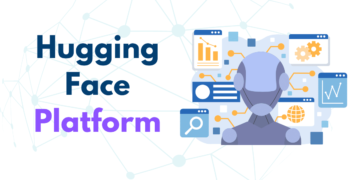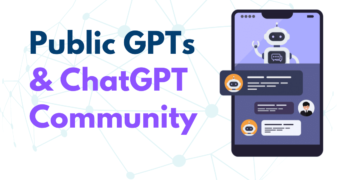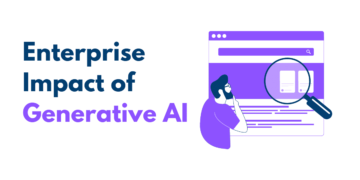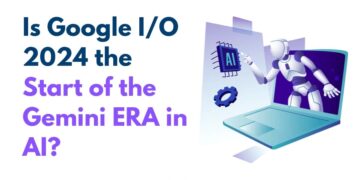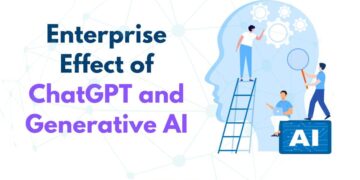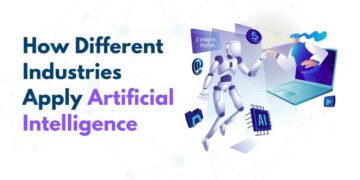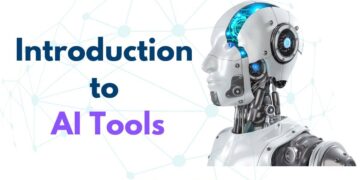Synthetic intelligence, or AI, has permeated each side of our lives, from voice assistants like Alexa and Siri to self-driving automobiles and tailor-made content material suggestions on streaming providers. As synthetic intelligence (AI) develops and penetrates extra industries, it’s crucial to consider the ethical ramifications and create governance buildings to ensure the moral creation and utility of AI techniques. AI ethics is the time period used to explain the ethical precepts & guidelines that AI techniques use to information their actions and selections. It’s unimaginable to overestimate the importance of moral issues in AI growth. However, AI governance entails the creation of frameworks, insurance policies, & laws to ensure the accountable and moral use of AI. Synthetic intelligence (AI) techniques might have an effect on folks individually, in teams, & all through society. As such, it’s crucial to ensure that AI is created & utilized in a approach that upholds elementary rights, fosters justice, and respects human values. The muse for AI growth is supplied by moral rules.
Transparency, accountability, fairness, privateness, and inclusivity are a few of these values. Builders can cut back potential dangers & be certain AI techniques are developed and used responsibly by following these tips. The outcomes of AI techniques are additionally closely influenced by moral issues. Discriminatory outcomes, for example, could come up from biased algorithms which can be skilled on biased coaching information. Builders can defend AI techniques from prejudice and discrimination and ensure they’re simply and equal by integrating moral issues into all the course of. AI practices which can be unethical can have severe repercussions for each folks and society at giant. Utilizing face recognition know-how with out permission or the required safety is one occasion of an unethical AI apply. This may increasingly end in infringements on private privateness and doable misuse of knowledge.
One other illustration is the appliance of AI algorithms in discriminatory & biased hiring practices. Synthetic Intelligence (AI) techniques have the potential to maintain present inequalities and discriminatory practices if they’re skilled on biased information or developed with biased algorithms. AI practices that lack ethics might have far-reaching results. They might enhance social injustices, compromise public confidence in AI techniques, and end in privateness violations. The accountable growth and implementation of ATransparency is due to this fact important, and transparency is a elementary tenet of AI ethics and governance. It’s crucial to acknowledge and mitigate these dangers. This pertains to the capability to grasp & elucidate the decision-making procedures employed by AI techniques. Programs of synthetic intelligence should be clear with the intention to foster accountability and belief. Making the underlying information & algorithms utilized by AI techniques accessible and intelligible is a needed step towards transparency in AI decision-making.
This makes it doable for folks & establishments to judge the accuracy, equity, and doable biases of AI techniques. It additionally fosters accountability and accountable use by permitting customers to contest and question the selections made by AI techniques. Together with exterior audits and critiques, disclosing the specifics of AI algorithms, and providing justifications for AI judgments are some strategies for enhancing transparency in AI decision-making. Builders could enhance confidence in AI techniques and ensure they’re used responsibly and accountablely by embracing transparency. AI techniques can automate and optimize a variety of duties, however moral AI practices require human oversight. Human oversight entails involving folks within the conception, creation, and utility of AI techniques to verify they adhere to ethical requirements and cultural norms. With a view to tackle prejudice and discrimination in AI algorithms, human oversight is crucial. In the case of deploying AI techniques, people are in a position to discern and cut back biases in coaching information, assess the equity of algorithms, and make well-informed selections.
| Subject | Description |
|---|---|
| AI Ethics | The rules and values that information the event and use of AI techniques in a accountable and moral method. |
| AI Governance | The insurance policies, laws, and frameworks that make sure the accountable and moral use of AI techniques. |
| Transparency | The flexibility to know how AI techniques make selections and the info they use to take action. |
| Accountability | The duty of people and organizations for the actions and selections made by AI techniques. |
| Equity | The avoidance of bias and discrimination within the growth and use of AI techniques. |
| Privateness | The safety of private data and information within the growth and use of AI techniques. |
| Safety | The safety of AI techniques from cyber assaults and different safety threats. |
Synthetic intelligence (AI) techniques have the potential to bolster present prejudices and discriminatory practices within the absence of human oversight. Additionally, when making advanced selections, human oversight is essential as a result of AI techniques may not be capable of keep in mind all pertinent elements. AI techniques will be made to make selections which can be per social norms and human values by incorporating human context, empathy, & moral judgment. Vital societal repercussions could outcome from bias and discrimination in AI algorithms. Discriminatory practices and present inequalities will be strengthened by AI techniques which were skilled on biased information or which were programmed with biased algorithms. Builders have quite a lot of choices for addressing discrimination and bias in AI algorithms. Assuring consultant and various coaching information that encompasses a variety of views and demographics is one technique.
Builders can decrease bias danger and assure honest & equitable AI algorithms by coaching AI techniques on quite a lot of information units. To detect and reduce biases, common audits and assessments of AI algorithms are an extra tactic. This entails evaluating the results of AI techniques on varied teams & analyzing their outputs. Builders can retrain AI techniques or alter algorithms if biases are discovered to ensure inclusivity and justice. Knowledge safety & privateness are necessary elements to keep in mind when utilizing AI. With a view to make judgments and provide individualized experiences, AI techniques often depend on huge volumes of private information. Nonetheless, points with information safety and privateness are introduced up by the gathering, storing, and use of private data. Builders can use robust information safety measures to safeguard safety and privateness in AI functions.

Knowledgeable consent from people, safe information storage and switch protocols, and anonymization & encryption of private information are all a part of this. Additionally, builders can embrace privacy-by-design rules, which entail incorporating privateness issues from the start when designing & growing AI techniques. Builders could assure that AI functions respect folks’s proper to privateness and protect the confidentiality and integrity of private information by inserting a excessive precedence on privateness and information safety. Authorized & regulatory frameworks are required to regulate the event and utility of AI know-how on account of its fast development. Authorized and regulatory frameworks assure adherence to ethical requirements and societal values whereas providing tips & requirements for moral AI practices. A variety of nations & areas have already put in place authorized and regulatory buildings for the governance of AI. Guidelines for the gathering, using, and archiving of private information, together with AI functions, are outlined within the Basic Knowledge Safety Regulation (GDPR) of the European Union.
The GDPR seeks to safeguard folks’s proper to privateness whereas requiring accountable and accountable use of AI techniques. AI governance frameworks & tips have additionally been launched by different nations, together with the US & Canada. These frameworks cowl a variety of AI-related subjects, reminiscent of privateness, accountability, transparency, & equity. For AI techniques for use responsibly and ethically, belief and accountability should be established. To ensure that folks and organizations to embrace and depend upon AI techniques, belief is a prerequisite. Nonetheless, accountability makes positive that customers and builders are held accountable for the alternatives and outcomes that AI techniques make. Builders can provide transparency, explainability, and equity high precedence with the intention to enhance consumer confidence in AI techniques. Builders can provide folks and organizations a greater understanding of how AI techniques operate & make selections by making AI techniques extra clear and explicable.
Due to its transparency, customers can maintain AI techniques accountable and construct belief. Laws, requirements, and express tips may also help set up accountability in AI techniques. Builders & organizations should take duty for the alternatives AI techniques make and the doable results these selections could have on folks & society. This accountability ensures the accountable use of AI techniques and the investigation & correction of any unfavorable results. Each alternatives and challenges lie forward for accountable AI. On the one hand, the swift growth of AI know-how presents risks & difficulties with regard to justice, privateness, and ethics. Nonetheless, moral AI holds the ability to vary entire sectors, improve decision-making, and resolve social points.
Sustaining a analysis and growth program to deal with moral points and cut back potential dangers is likely one of the challenges going through accountable AI. This entails creating dependable algorithms, guaranteeing inclusivity and equity, and coping with prejudice and discrimination. The need of stakeholder collaboration & cooperation presents one other issue. To create finest practices, authorized frameworks, and moral requirements, accountable AI necessitates the participation of builders, legislators, researchers, and customers. Nonetheless, there are a number of benefits to moral AI. Along with addressing societal points like social inequality, healthcare, and local weather change, it could possibly strengthen decision-making processes and enhance productiveness and effectivity. When AI techniques are developed and carried out responsibly, they’ll contribute to the event of a extra simply & inclusive society by upholding human values and advancing the widespread good. To summarise, the event and implementation of AI techniques necessitate cautious consideration of AI ethics and governance.
AI techniques behave and make selections primarily based on moral rules, and governance frameworks assure that their use is acceptable and accountable. We are able to make sure that AI techniques are reliable and accountable by tackling the hazards of unethical AI practices, encouraging transparency & human oversight, addressing bias & discrimination, safeguarding privateness & information safety, and setting up authorized and regulatory frameworks. Attaining the best doable advantages of AI for society and the financial system requires navigating the alternatives & challenges that the accountable use of AI will convey sooner or later.
If you happen to’re interested by exploring the intersection of AI ethics and governance, you might discover this text on AI Outils fairly intriguing. It discusses the significance of managing and sharing digital property responsibly within the age of synthetic intelligence. The article highlights a platform known as BrandBay, which presents progressive options for companies to successfully deal with their digital property whereas contemplating moral implications. To study extra about how BrandBay may also help navigate the complexities of AI ethics and governance, try the article here.

